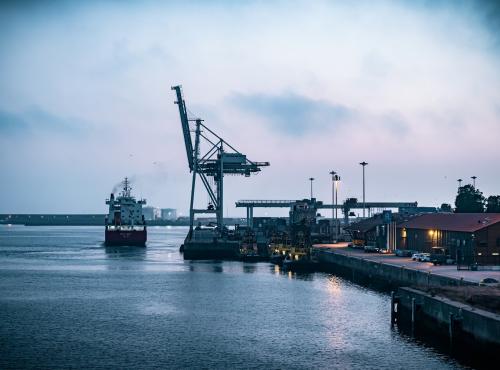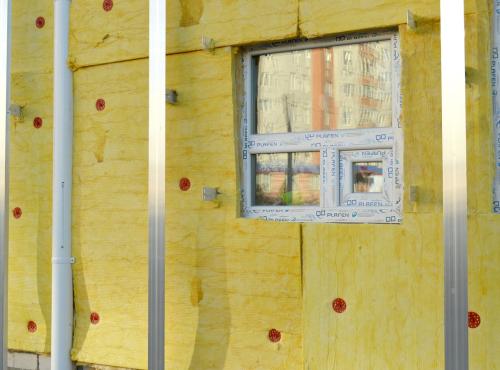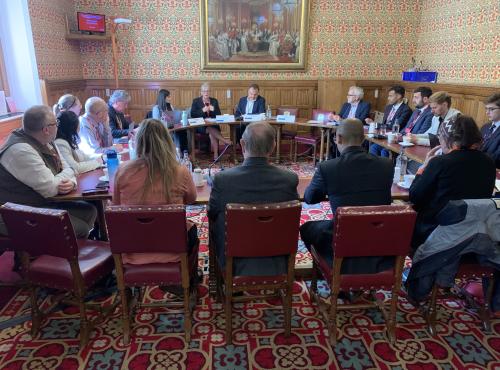Cooling for Net Zero
The summer of 2022 witnessed the UK’s first ever Level 4 heat-health alert as record-breaking temperature of 40 degrees Celsius were reached. This, along with consistently higher temperatures in the summer, has showcased the need for the UK to adapt to a warming climate and better manage the associated risks of extreme heat.
There is widespread concern about the impact of high temperatures on people’s mental and physical health, particularly on the most vulnerable such as the elderly, disabled people, and those with underlying medical conditions. Estimates have shown that heat-related deaths in the UK have exceeded 4,500, with this figure expected to increase to 10,000 annual deaths without sufficient heat adaption measures. Rising temperatures also tend to pose a high economic and environmental cost as more households and businesses opt for active cooling solutions which inadvertently place additional pressure on energy networks, drive-up energy bills, and contribute to an increase in greenhouse gas emissions.
In January 2024, the Environmental Audit Committee (EAC) published a report on Heat Resilience and Sustainable Cooling to shed light on these challenges, calling for government support to deliver a national heat resilience strategy. In its report, the Committee called for a national retrofit programme to adapt the UK housing stock to changes in the climate, a greater focus on nature-based solutions, and the need to improve public awareness on the risks of overheating.
The Government subsequently responded to the report in April 2024, recognising the threat of extreme heat and establishing a Climate Resilience Board to promote cross-governmental work. The chair of the Environmental Audit Committee has branded the response a “missed opportunity”, lacking commitment towards the development of a national heat resilience strategy that is supported by strong regulation.
On 22 April, Policy Connect, through its low carbon-energy forum Carbon Connect and in partnership with Innovate UK Business Connect, held a parliamentary roundtable to discuss some of the challenges of sustainable cooling, the recommendations proposed in EAC’s report, and the Global Cooling Pledge signed at COP28. The session chaired by Wera Hobhouse MP brought together a range of different perspectives from academia, industry, civil society, and other parliamentarians, including Philip Dunne MP, Chair of the EAC, and Minister Amanda Solloway MP.
During the session, stakeholders discussed the challenge of skills, lack of funding, low public awareness, and poor regulation that hinders the adoption of sustainable cooling and heat resilience measures in the UK. To tackle the forementioned challenges, stakeholders suggested the following recommendations:
-
Passive cooling measures, such as installing shutters and window shading, should be prioritised over active cooling ones due to the former being more environmentally and economically friendly.
-
The Government should mandate local authorities to protect and enhance green spaces to counter the urban heat island effect.
-
The Government should adopt a fabric first approach to address overheating concerns by improving building standards supported by regulation.
-
Industry and the Government should work together to roll out accredited apprenticeships and bootcamps to train the workforce in correctly installing passive and active cooling measures.
-
The Government should pursue a public campaign to increase awareness on the risks of heatwaves and how to overcome these risks.
-
To better understand the environmental cost of active cooling measures, industry should promote open-source monitoring of cooling technologies to provide greater visibility on system performance.
-
To cultivate an environment which promotes innovative and energy efficient cooling technologies, government must support industry through early procurement and by designing sandboxes or pilot programmes to test these near to market technologies.
-
The Government should unlock greater investment to develop efficient cooling technologies and to train the workforce to correctly install these technologies.
For more information, please contact alainah.amer [at] policyconnect.org.uk (alainah[dot]amer[at]policyconnect[dot]org[dot]uk).



